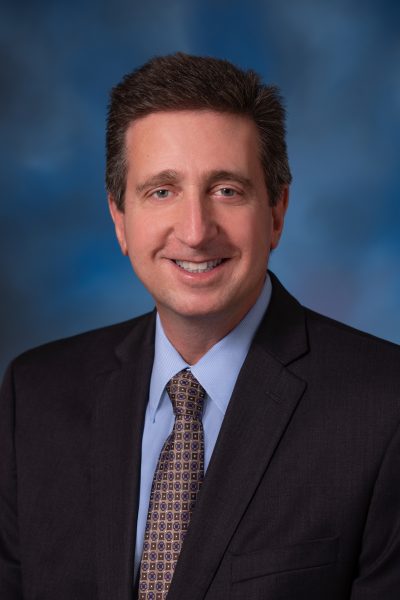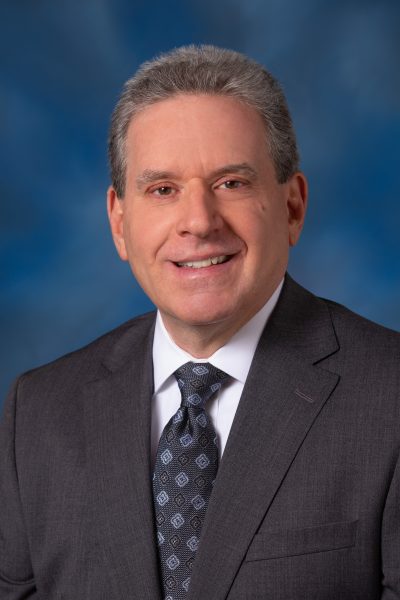Call Our Bankruptcy Attorneys at 248-723-2019
Bankruptcy-Debtors
You want the financial cloud hanging above your head to go away and you need a fresh start. We know how to make that happen.
We Can Stop:
- Creditor harassment
- Pay day loans
- Foreclosures
- Repossessions
- Lawsuits
- Wage or bank garnishments
We Can Help With:
- Taking control of your debt
- Tax debt
- Credit card debt
- Medical expenses
- Student loans
- Child support arrearage
Are you ready for a new beginning?
We know you want the stress of your situation to stop. When it comes to bankruptcy and debt relief, there is virtually nothing we haven’t seen or done.
We will immediately review your situation, go over alternative bankruptcy and debt relief strategies, and recommend the best solution for you.
For example, we recently helped a Chapter 13 bankruptcy client avoid $67,000 in debt and cut their mortgage payment in half.
We can help you too.
Fully equipped to represent you throughout any bankruptcy process:
- Chapter 7 Bankruptcy
- Chapter 11 Bankruptcy
- Sub-Chapter V Chapter 11
- Chapter 13 Bankruptcy
- Out-of-Court Workouts
- Business Wind-downs/Asset Liquidations
- Representation of Creditors
- Defense of Preference Actions
- Pursuing and Defending Adversary Proceedings
F.A.Q.


Steven J. Cohen
Direct: 248-723-2019
Scohen@lipsonneilson.com
Steve has 30 years of experience practicing law, the last 26 of which he has spent primarily in the areas of Bankruptcy and Insolvency law representing individuals and businesses in chapters 7, 11, and 13 bankruptcy cases, out-of-court workouts, business wind-downs and asset liquidations.


Michael D. Lieberman
Direct: 248-723-4801
Mlieberman@lipsonneilson.com
Mike has 30+ years of experience practicing bankruptcy, insolvency and creditor’s rights law. He primarily specializes in representing individuals and small businesses in chapter 7, 11, and 13 bankruptcies, out-of-court workouts, business wind-downs, asset liquidations and Insolvency matters.
Our Experience Will Make the Difference
For more than 30 years, our bankruptcy attorneys have successfully worked with clients, both business and individuals, that had overwhelming debt.
If you need debt relief, bankruptcy may be your best option, but it is not your only option. Lipson Neilson's experienced attorneys can help you file for bankruptcy, but more importantly, we will also help you assess alternatives to bankruptcy that may help you achieve your goals.
We will help you set practical goals to satisfy or eliminate debts, and we will recommend the most effective legal strategies.
Depending on your specific situation, along with bankruptcy, you might consider a debt resettlement plan, debt restructuring, refinancing options, mediation, and direct negotiation with creditors. We help you evaluate the pluses and minuses of each option and determine the best approach for your situation and future goals.
Whatever solution is best for you, we are fully equipped to work with you every step of the process and make sure you receive the debt relief you need.
To find out how the Lipson Neilson bankruptcy attorneys can work for you please call our office at 248-593-5000, or email Steve Cohen at SCohen@lipsonneilson.com or Mike Lieberman at MLieberman@lipsonneilson.com.
Chapter 7 Bankruptcy
Chapter 7 is the most common and frequently filed form of bankruptcy. It is available to individuals and businesses. In an individual chapter 7 case, the Debtor (person who is filing the case), seeks to receive a Discharge. The Discharge is the legal determination that the Debtor no longer has personal liability for paying his/her debts.
Some debts cannot be discharged in a chapter 7. These debts include most taxes, domestic support obligations, which include alimony and child support, student loans, liabilities resulting from an injury caused while operating a vehicle under the influence of drugs and/or alcohol and debts that are determined to be incurred as a result of fraudulent activity by the Debtor.
Corporations and other business entities may file a chapter 7 case, but they do not receive a Discharge. Instead, the business entity ceases operations.
Individual Debtors in a bankruptcy case are allowed to protect, or exempt, certain property in their case. A chapter 7 case is frequently described as “liquidation.”
In a chapter 7, a court-appointed trustee is charged with collecting and liquidating the debtor's nonexempt property (i. e. property that cannot be protected in the case), and the proceeds are disbursed to the creditors according to the priorities set by the bankruptcy code.
In the case of a corporation, the Debtor cannot exempt any property. The Debtor’s assets are liquidated by the trustee, and the proceeds are disbursed to the creditors according to the priorities set by the bankruptcy code.
Chapter 11 Bankruptcy
Chapter 11 proceedings are typically more complicated bankruptcies, generally utilized by business entities seeking to reorganize or restructure their debt. In some situations, a Chapter 11 is filed to allow the Debtor to sell some or all of its business assets or operations. In a Chapter 11, management of the Debtor usually continues to operate the business as a “Debtor in Possession” under the supervision of the bankruptcy court.
In most cases the Debtor, with input from creditors and their representatives, proposes a plan of reorganization. Creditors have an opportunity to vote in favor of, or in opposition to, the plan. If the plan receives sufficient votes in terms of (a) the number of votes actually cast, and (b) the dollar amount of the votes actually cast in favor of the plan, then the plan is confirmed. The “Reorganized Debtor” is then responsible for implementing and carrying out the Plan. If a Debtor cannot obtain confirmation of a Plan, or if a Debtor fails to consummate a confirmed plan, then the case will usually be converted to Chapter 7, and the assets are then liquidated by a chapter 7 trustee.
Chapter 13 Bankruptcy
In a Chapter 13 case, the Debtor is required to file a plan of reorganization. The plan proposes to pay creditors over a period of time that usually is not less than 36 months, but cannot be longer than 60 months in length. The Debtor is not required to pay all creditors in full, but the Debtor is required to pay all of his/her net future disposable income to the creditors over the life of the plan. The Debtor is also required to pay creditors at least as much as they would hypothetically receive in a chapter 7.
Chapter 13 bankruptcy is only available to individuals or sole-proprietorships. The Debtor must have a regular source of disposable income. In a chapter 13, the Debtor can retain property that might not be exempt in a Chapter 7 case, so long as the Debtor pays the value of the non-exempt property through the plan. A Debtor will most commonly file a chapter 13 case, as opposed to a chapter 7, in one of two situations.
First, if the chapter 13 case is filed BEFORE the Sheriff’s sale occurs in a foreclosure proceeding, the chapter 13 filing stops the sale from occurring. In a chapter 13 case, if the value of the home is less than the amount owed on the first mortgage, the Debtor can implement a procedure called "lien stripping" which enables the Debtor to "strip off" second mortgages, or home equity loans, and effectively convert them from secured debts (which cannot be compromised) to unsecured debts (which can be compromised) in a chapter 13 Plan.
Second, if an individual debtor cannot qualify for a chapter 7, the usual bankruptcy alternative is a chapter 13. If a chapter 13 Debtor successfully completes his/her plan, then he/she receives a discharge of the remainder of the debt, except for those debts that are not dischargeable or that otherwise survive the bankruptcy case.
Creditor Workouts
In many circumstances a bankruptcy may not be the best option for the Debtor, or the Debtor may not wish to file a bankruptcy proceeding. In that case, the Debtor may want to consider an out of court workout with its creditors. The Creditor Workout is a consensual arrangement that the Debtor makes with creditors to settle the Debtor’s obligations. The Creditor Workout can be used in a business or an individual consumer case. Since this alternative takes place without court supervision, creditors must be willing to cooperate with the Debtor, and avoid litigation, in order to be successful. In most cases a Creditor Workout results in creditors receiving a larger, more timely distribution than they would receive through a formal bankruptcy proceeding.
Business Wind-Downs
A business wind-down or liquidation is another out of court alternative that allows the business Debtor to liquidate and wind down its business affairs without court supervision. This process is done with the knowledge and consent of the secured creditor(s) who may have a security interest in the assets of the Debtor.
Ordinarily, the Debtor can liquidate the assets and realize a greater recovery for the secured creditor if the Debtor is permitted to handle the liquidation. If a business Debtor’s principal(s) has/have given (a) personal guaranty(ies) to the secured creditor(s), the Debtor has an incentive to maximize the recovery for the secured creditor in order to reduce the exposure on the personal guaranty(ies).
If a secured creditor refuses to allow the Debtor to handle the liquidation, then the assets are usually surrendered to, and then liquidated by, the secured creditor. In most cases, the assets are not worth what the secured creditor is owed and the principal(s) are left with a large deficiency obligation owed to the secured creditor on the personal guaranty(ies). In that case, the individual principals are usually forced to consider their own bankruptcy options. In cases where there is no secured debt, the Debtor can still do an out of court liquidation, and work out a payment plan to distribute the proceeds to the unsecured creditors.
Bankruptcy-Creditors
There is virtually nothing our attorneys haven’t seen or done in this very specialized area of law.
Too often, creditors find themselves having to conclude important, expensive business relationships in bankruptcy court. We bring a comprehensive understanding of bankruptcy law earned in complex insolvency proceedings to our representation of secured and unsecured creditors.
Bankruptcy lawyers
Our emphasis on debtor-creditor matters gives our bankruptcy lawyers a special understanding of the bankruptcy system. In addition, we use insights gained from representing debtors, trustees, and other participants in debtor-creditor legal proceedings to benefit clients we represent as creditors.
Our unsecured creditor clients run the gamut from small businesses pursuing collection of a claim to large institutional investors holding millions of dollars worth of debt instruments. We also represent unsecured creditors with specialized problems, such as landlords, franchisors, licensors and licensees.
Secured creditors
For secured creditors, our attorneys evaluate the client’s security documentation and, if issues exist, recommend ways to address them. Outside the bankruptcy arena, we have advised secured creditors on forbearance agreements, out-of-court restructurings, foreclosure proceedings, assignments for the benefit of creditors, and receiverships. In bankruptcy cases representing secured creditors, we have employed the full range of creditors’ remedies, including:
- Appointment of Trustees
- Debtor in Possession Financing
- Motions for Relief
- Opposition to Plan Confirmation
- Proposing a Creditor’s Plan
- Stay to Opposition
- Use of Cash Collateral
To find out how the Lipson Neilson bankruptcy attorneys can work for you please call our office at 248-593-5000, or email Mike Lieberman at MLieberman@lipsonneilson.com, or Steve Cohen at SCohen@lipsonneilson.com.
Practice Areas & Legal Services
Lipson Neilson covers a broad range of business and individual legal services. Large and small businesses, financial institutions and individuals can rely on Lipson Neilson for attentive, efficient legal services.
- Appellate Law
- Business & Commercial Litigation
- Employment Law
- Estate Planning
- Homeowner Association
- Probate Litigation
- Real Estate Law
- Domestic & Family Law
- Business & Tax Law
- Arbitration
- Employment Litigation
- Securities Law & Private Equity
- Election Law
- Professional Liability
- Probate & Trust Administration
- Professional Discipline Defense
- Surety & Fidelity Law
- Multijurisdictional Practice (MJP)
- COVID-19 Resource Center
- Bankruptcy-Debtors
- Bankruptcy-Creditors